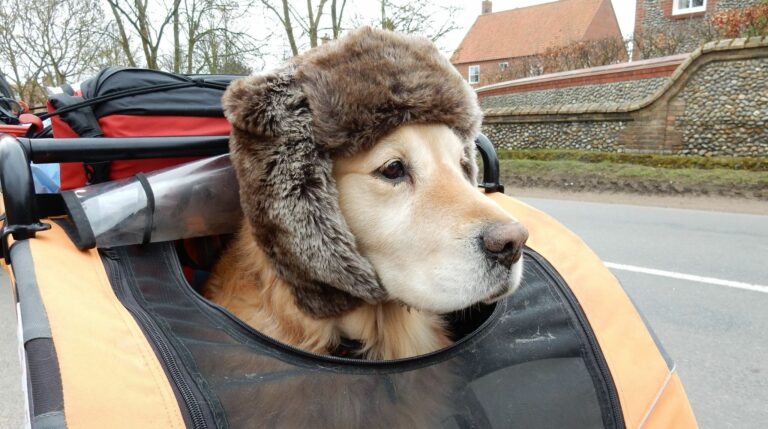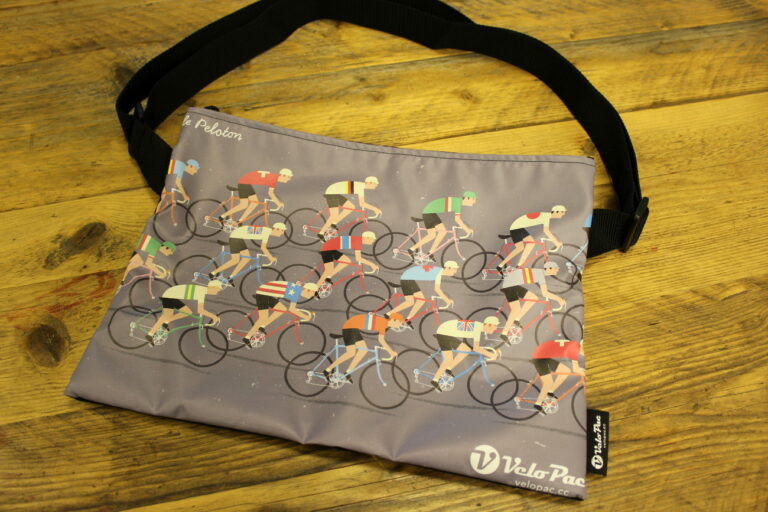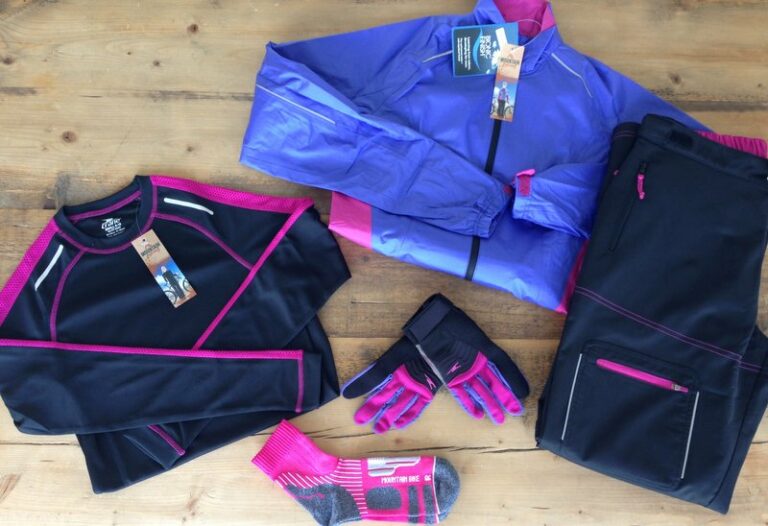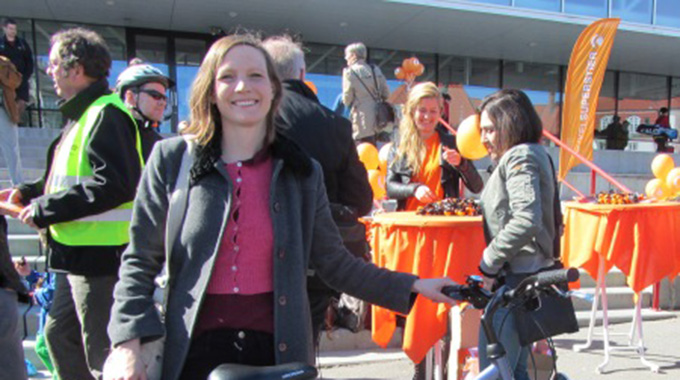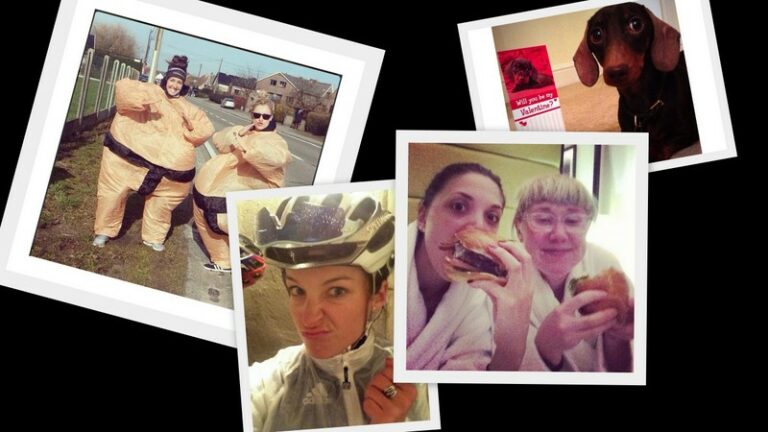-
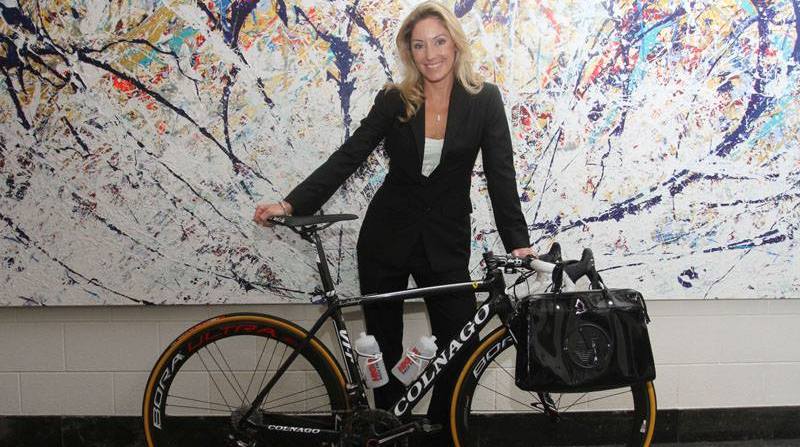
-
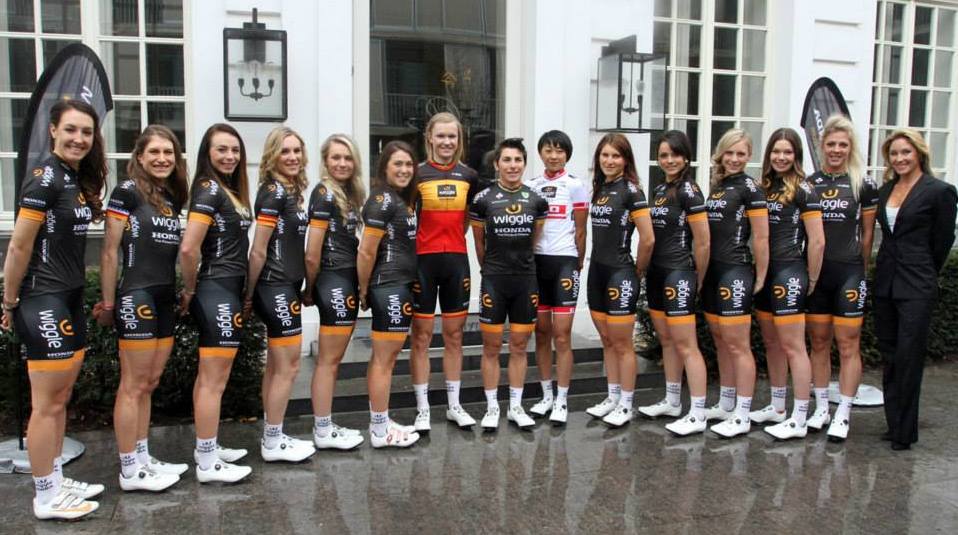
Rochelle Gilmore poses with the 2015 Wiggle Honda Pro Cycling Team
Rochelle Gilmore is one of the most intriguing people I have ever met. For starters, I really want to know how she finds enough hours in the day to successfully balance her roles as successful businesswoman, athlete, women’s cycling advocate, team manager, commentator and mentor. This is one woman who does not shy away from hard graft.
Wiggle Honda Announce 2015 Line Up
Since its launch in 2013, we have seen Gilmore’s team Wiggle Honda go from strength to strength, they are currently ranked third in the world with ambitions to end 2015 in the top spot. Off the bike, the team’s success has also been impressive.
Even a brief encounter with this team will show you that they are different to the rest. At races their taped off camper screams “We mean business” with hordes of fans gathering to catch a glimpse and a quick selfie with the girls. Meanwhile in the media, Wiggle Honda earn the lion’s share of the column inches allocated to women’s cycling. Last year alone the team conducted 1,300 media interviews.
Gilmore’s commercial awareness and resolute ambition to give women’s cycling the recognition it deserves is clearly evident across the entire Wiggle Honda outfit. And I have to say, it impresses the hell out of me.
A day in the life of a Directeur Sportif for Wiggle Honda
But it hasn’t been an easy road for Gilmore. Women’s cycling is still a far way behind the men’s. A team cannot simply slap a logo on their jersey and rely on guaranteed exposure in the press to fulfil their end of the bargain. Instead Gilmore has had to think of alternative strategies to lure big named sponsors into the world of women’s cycling.
“I had to think outside the box a little bit because traditionally you go to a sponsor and you propose the value in TV exposure and print media and all that kind of thing. But we couldn’t really depend on that where the sport was a few years ago,” explains Gilmore.
“I met with 30 different companies for title sponsorship for the team but with Wiggle I could come up with a strategy to boost their sales and get the athletes to influence people which would also boost sales. It also made it more attractive for our product sponsors to come on board because we have an avenue of selling through Wiggle,” continues Gilmore.
Behind the scenes with Wiggle Honda at the Women’s Tour
Sustainability is a word I hear Gilmore utter time and time again throughout the Wiggle Honda launch. And as I spend more and more time in her company I gain a better understanding of what she means by this. Gilmore has no interest in luring in big named sponsors for short to medium periods, instead she gets them in and ensures they get bang for their buck, thus encouraging them to continue their investment. It sounds simple but Gilmore is one of only a handful of people within the women’s pro-cycling world who insists on looking at the full picture.
This strategy also means that her team do not only have obligations on the bike. All 15 of Gilmore’s girls are well versed in their responsibility to contribute to the growth of women’s cycling as a whole.
“There is a lot of interest in the team and that comes down to the athletes being so open to learning and education from me. I give them points on the messages that we want to get out about women’s cycling in our team and our partners and they are very willing to learn to increase our sport,” says Gilmore.
“They [the girls] see how much work I put into it, I use every single second of the day to promote women’s cycling and I think they respect that and they see that because they are on the inside. And they want to work towards that with me. I have their 100% backing,” she continues.

